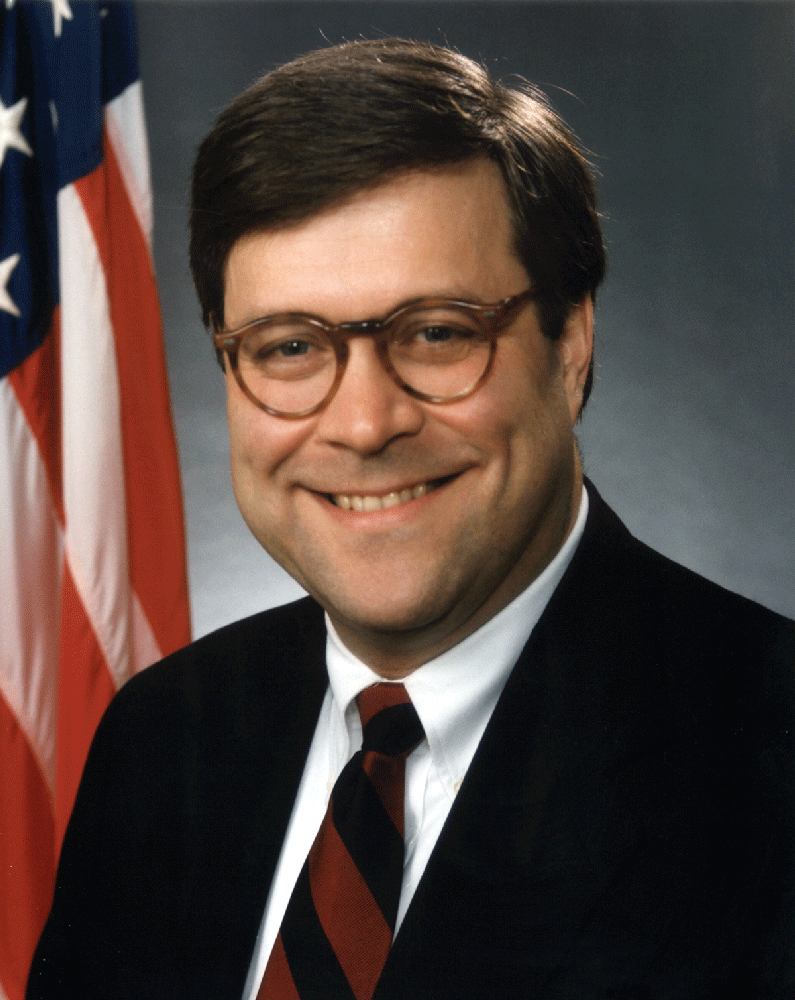 The Freedom From Religion Foundation is intensely opposed to William Barr being confirmed as attorney general of the United States.
The Freedom From Religion Foundation is intensely opposed to William Barr being confirmed as attorney general of the United States.
Trump nominated Barr last month to replace Jeff Sessions — an ironically apt choice given how problematically similar Barr is to his predecessor.
“Barr is like Sessions in all the wrong ways: He wants to redefine religious freedom as a license to discriminate, thinks we need a ‘religious liberty task force,’ and demeans and disparages secular Americans,” says FFRF Co-President Annie Laurie Gaylor. “I consider him un-American, since he stands against foundational American principles.”
During his previous stint as attorney general under President George H.W. Bush, Barr delivered speeches in which he “blamed secularism for virtually every contemporary societal problem.” Barr called for American law to be based on “God’s law” and attacked Americans who value a secular government, like those who work for and support the Freedom From Religion Foundation, as “clearly fanatics.” He even argued in the same speech that preventing public schools from organizing and imposing prayers on children, which is required by the Constitution, moves the nation away from Judeo-Christianity and causes “soaring juvenile crime, widespread drug addiction, skyrocketing rates of venereal disease, [and] 1.5 million children aborted each year.” This were not isolated statements, but themes and accusations Barr repeated constantly, going so far as to claim that “extremist notions of separation of state and church” had inflicted a “moral lobotomy” on the country.
“The only extremist notion of state-church separation that should concern Barr is his own,” argues FFRF Strategic Response Director Andrew L. Seidel. “His open disdain for that constitutional principle, one that America invented, suggests that he does not understand that freedom of religion only exists when the government is free from religion.”
Barr finds in secular Americans an easy scapegoat. Had he blamed venereal disease or crime on another group, such as Jewish Americans, he would never make it through the Senate, FFRF charges.
Barr will also work to weaponize religious liberty. A recent Washington Post op-ed of his praises the Justice Department’s support under Sessions of discriminatory enterprises, most famously in the Masterpiece Cakeshop case, in which a business demanded a license to discriminate based on the business’s religious beliefs.
Barr has defended Christopher Columbus, a troubling view, since some of Columbus’s legacies include genocide, theft, disease, and slavery. In a 1992 speech to the Catholic League, Barr excused Columbus’s evil because everyone was doing it and Columbus was a Christian: “The Europeans did bring something that was new. They brought a set of beliefs — the Judeo-Christian tradition — a moral culture, which provided a critique of injustice and a compelling account of man’s true dignity.”
FFRF Co-President Dan Barker, who is a member of the Lenni Lenape (Delaware Indian) Tribe of Native Americans, says, “Given his disdain for secular Americans and his willingness to excuse some of the most lawless and immoral actions this continent has seen because the criminal was Catholic, FFRF is concerned that Barr will not be the fair and just chief law enforcement officer our country needs.”
FFRF is also part of a secular alliance that is calling on the Senate Judiciary Committee to reject Barr’s nomination on similar grounds. The joint letter, signed on by Secular Coalition for America, American Atheists and Center for Inquiry in addition to FFRF, reiterates and amplifies many of the apprehensions that FFRF is bringing up.
Barr’s views raise two distinct and serious concerns regarding his fitness to serve as the head of the Justice Department, the letter says. As attorney general, Barr would be tasked with defending the Constitution. His open disdain for the constitutional principle of a separation between state and church indicates that Barr does not respect the First Amendment’s guarantee of a secular government. And his blaming of secular Americans — 24 percent of all Americans are nonreligious — for society’s problems should be similarly disqualifying.
The letter points out an additional problem with Barr’s scapegoating. The head of the Department of Justice must be committed to an objective, fact-based approach to fighting crime. Shifting the blame for crime to a minority group is not only discriminatory, but also a dereliction of duty because, by failing to fully understand crime’s root causes, it risks ineffective administration of justice.
Barr’s dismissiveness for legal precedent extends to his disdain for reproductive rights. During Barr’s 1991 confirmation hearing, he testified that he “do[es] not believe the right to privacy extends to abortion.” He asserted “that Roe v. Wade was wrongly decided and should be overruled.” And although Barr assured this committee in 1991 that Roe v. Wade was “the law of the land,” as attorney general he acted as though it were not. Barr will do the same again — and he should not be given that chance.
William Barr blames nonreligious Americans for all of the country’s problems, supports religiously based discrimination, and intends to continue advancing the unconstitutional policies that Sessions initiated. He also fundamentally misunderstands the importance of keeping church and state separate. For these reasons, the Freedom From Religion Foundation and other secular organizations strongly oppose his confirmation to be attorney general.

